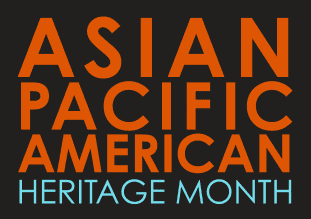May is Asian/Pacific American Heritage Month – a celebration of Asians and Pacific Islanders in the United States.
“Mercer County is home to many who self-identify as Asian or Pacific Islander, yet their and their ancestors’ rich heritage, stories and contributions are often overlooked,” Mercer County Executive Brian Hughes said.
“During Asian Pacific American Heritage Month, I encourage everyone to fully engage with Mercer County’s diverse communities to learn about each other, to promote acceptance and inclusion, and to work together to advance education, tolerance and love for one another.”
A rather broad term, Asian/Pacific encompasses all of the Asian continent and the Pacific islands of Melanesia (New Guinea, New Caledonia, Vanuatu, Fiji and the Solomon Islands), Micronesia (Marianas, Guam, Wake Island, Palau, Marshall Islands, Kiribati, Nauru and the Federated States of Micronesia) and Polynesia (New Zealand, Hawaiian Islands, Rotuma, Midway Islands, Samoa, American Samoa, Tonga, Tuvalu, Cook Islands, French Polynesia and Easter Island). The month of May was chosen to commemorate the immigration of the first Japanese to the United States on May 7, 1843, and to mark the anniversary of the completion of the transcontinental railroad on May 10, 1869. The majority of the workers who laid the tracks were Chinese immigrants.
Some calendar of events:
“A Hyphenated Spirit,” Ethnic Prejudice and Japanese American Incarceration during World War II will be held at 7 p.m. May 22 virtually through the Mercer County Library System. It will be presented Dr. Anne Giblin Gedacht, assistant professor of history at Seton Hall University. Email [email protected] to register to receive link to program. Registration is required.
A 1983 Congressional Blue-Ribbon Commission declared that the incarceration of Japanese American citizens during the Pacific War (Executive Order 9066, issued by President Franklin Roosevelt in 1942) had been a “grave injustice” caused by “race prejudice, war hysteria, and a failure of political leadership.” Indeed, this dark chapter of American history resulted in the relocation of 117,000 people including 70,000 U.S. citizens, based solely on their ethnic heritage. This talk will investigate the history behind why the U.S. population in 1942 was willing to accept that individuals of Japanese descent had a “hyphenated spirit” and, therefore, should be denied their civil rights. Ultimately, we will interrogate the specter of the landmark, ethnically-based Executive Order 9066 to understand how it still haunts contemporary U.S. politics.
Amplifying Asian American and Pacific Islander History
Tuesday, May 23 – 7-8 p.m. – Princeton Public Library – Community Room, 65 Witherspoon St. In this session, participants will explore the influences and contributions of Asian American and Pacific Islander communities in U.S. history from the 19th through mid-20th centuries.
Film and Q&A: “Who Killed Vincent Chin?”
Tuesday, May 30 – 6-8:30 p.m. – Princeton Public Library – Community Room. A screening of the award-winning 1987 documentary is followed by a Q&A with filmmaker Christine Choy.

